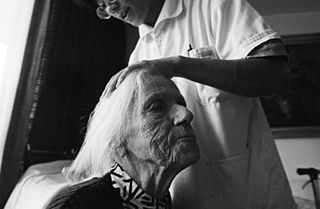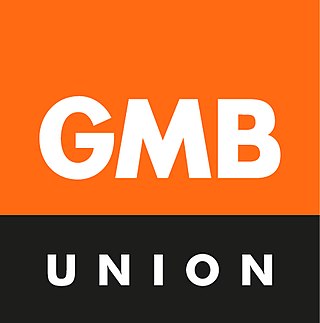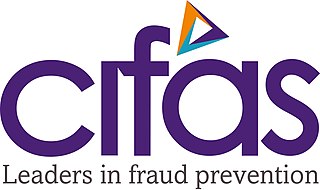Related Research Articles

Home care is supportive care provided in the home. Care may be provided by licensed healthcare professionals who provide medical treatment needs or by professional caregivers who provide daily assistance to ensure the activities of daily living (ADLs) are met. In-home medical care is often and more accurately referred to as home health care or formal care. Home health care is different non-medical care, custodial care, or private-duty care which refers to assistance and services provided by persons who are not nurses, doctors, or other licensed medical personnel. For patients recovering from surgery or illness, home care may include rehabilitative therapies. For terminally ill patients, home care may include hospice care.

The GMB is a general trade union in the United Kingdom which has more than 560,000 members. Its members work in nearly all industrial sectors, in retail, security, schools, distribution, the utilities, social care, the National Health Service (NHS), ambulance service and local government.

Child care, otherwise known as day care, is the care and supervision of a child or multiple children at a time, whose ages range from two weeks of age to 18 years. Although most parents spend a significant amount of time caring for their child(ren), child care typically refers to the care provided by caregivers that are not the child's parents. Child care is a broad topic that covers a wide spectrum of professionals, institutions, contexts, activities, and social and cultural conventions. Early child care is an important and often overlooked component of child development.

Andrew David Lansley, Baron Lansley, is a British Conservative politician who previously served as Secretary of State for Health and Leader of the House of Commons. He was Member of Parliament (MP) for South Cambridgeshire from 1997 to 2015.

The National Minimum Wage Act 1998 creates a minimum wage across the United Kingdom. From 1 April 2023, the minimum wage is £10.42 for people aged 23 and over, £10.18 for 21- to 22-year-olds, £7.49 for 18- to 20-year-olds, and £5.28 for people under 18 and apprentices.
General medical services (GMS) is the range of healthcare that is provided by general practitioners as part of the National Health Service in the United Kingdom. The NHS specifies what GPs, as independent contractors, are expected to do and provides funding for this work through arrangements known as the General Medical Services Contract. Today, the GMS contract is a UK-wide arrangement with minor differences negotiated by each of the four UK health departments. In 2013 60% of practices had a GMS contract as their principal contract. The contract has sub-sections and not all are compulsory. The other forms of contract are the Personal Medical Services or Alternative Provider Medical Services contracts. They are designed to encourage practices to offer services over and above the standard contract. Alternative Provider Medical Services contracts, unlike the other contracts, can be awarded to anyone, not just GPs, don't specify standard essential services, and are time limited. A new contract is issued each year.
Health and Social Care (HSC) is the publicly funded healthcare system in Northern Ireland. Although having been created separately to the National Health Service (NHS), it is nonetheless considered a part of the overall national health service in the United Kingdom. The Northern Ireland Executive through its Department of Health is responsible for its funding, while the Public Health Agency is the executive agency responsible for the provision of public health and social care services across Northern Ireland. It is free of charge to all citizens of Northern Ireland and the rest of the United Kingdom.

Four Seasons Health Care is a British provider of health and social care services. It also owns The Huntercombe Group, a provider of inpatient mental healthcare and brain injury rehabilitation as well as care home operator brighterkind. Four Seasons, as it is today, was created both organically and by the buying out of smaller chains of care homes and rebranding them, as evidenced by the takeovers of Tamaris and Bettercare. At its largest it was the second-biggest care home operator in the UK.

Cifas is a fraud prevention service in the United Kingdom. It is a not-for-profit membership association representing organisations from across the public, private and voluntary sectors. Cifas states its mission is ‘to detect, deter and prevent fraud in society by harnessing technology and working in partnership’.

The National Health Service (NHS) is the umbrella term for the publicly funded healthcare systems of the United Kingdom, comprising the National Health Service in England, NHS Scotland and NHS Wales. Health and Social Care in Northern Ireland was created separately and is often locally referred to as "the NHS". The original three systems were established in 1948 as part of major social reforms following the Second World War. The founding principles were that services should be comprehensive, universal and free at the point of delivery—a health service based on clinical need, not ability to pay. Each service provides a comprehensive range of health services, provided without charge for people ordinarily resident in the United Kingdom apart from dental treatment and optical care. In England, NHS patients have to pay prescription charges; some, such as those aged over 60, or those on certain state benefits, are exempt.
In England, social care is defined as the provision of social work, personal care, protection or social support services to children or adults in need or at risk, or adults with needs arising from illness, disability, old age or poverty. The main legal definitions flow from the National Health Service and Community Care Act 1990, with other provisions covering disability and responsibilities to informal carers. That provision may have one or more of the following aims: to protect people who use care services from abuse or neglect, to prevent deterioration of or promote physical or mental health, to promote independence and social inclusion, to improve opportunities and life chances, to strengthen families and to protect human rights in relation to people's social needs.
111 is a free-to-call single non-emergency number medical helpline operating in England, Scotland and Wales. The 111 phone service has replaced the various non-geographic 0845 rate numbers and is part of each country's National Health Service: in England the service is known as NHS 111; in Scotland, NHS 24; and in Wales, NHS111 Wales.
The Royal Cornwall Hospitals NHS Trust is an NHS trust which runs West Cornwall Hospital, St Michael's Hospital, Royal Cornwall Hospital, and St Austell Hospital - Penrice Birthing Unit, in Cornwall, England.
The Los Angeles County Federation of Labor was started in 1885. Originally, the Los Angeles County Federation of Labor was split into five individual unions of bakers, cigar makers, printers, tailors, and carpenters. Now they represent over 300 unions, about 800,000 people, throughout Los Angeles County, making it the second largest in the country. “A survey published in December 2003 showed that the three largest unions in the Los Angeles County Federation of Labor were SEIU 434B, SEIU 399 with forty-five thousand health care and other employees, and the United Teachers of Los Angeles .” They have helped make Los Angeles a union city. Their mission is to “ promote a voice for workers through organizing themselves into unions, building strong coalitions of labor, community, faith, and responsible businesses, engaging in both organizing and political campaigns, electing pro-union and pro-worker candidates and advancing public policies that support workers, families and local communities.” They also encourage people to help make change by voting. The Los Angeles County Federation of labor is a major focal point for new American labor movement. Recently, the impressive progression of Los Angeles becoming a union city has become a stand out model for other non-union cities because of Los Angeles’ anti-union history. Los Angeles combines the economic development activism and the refined political work of the Los Angeles County Federation of Labor.
Mears Group plc is a housing and social care provider. It repairs and maintains over 700,000 social homes across the UK.
Home care in the United Kingdom is supportive care provided in the home. Care may be provided by licensed healthcare professionals who provide medical care needs or by professional caregivers who provide daily care to help to ensure the activities of daily living (ADLs) are met. In home medical care is often and more accurately referred to as home health care or formal care. Often, the term home health care is used to distinguish it from non-medical care, custodial care, or private-duty care which is care that is provided by persons who are not nurses, doctors, or other licensed medical personnel.
The National Association for Home Care & Hospice is an association for providers of hospice care in the United States. It represents 33,000 home care and hospice organizations and is based in Washington DC. Bill Dombi is the president.
Newcross Healthcare is a company based in Totnes which provides agency social and health care workers. It is among the five biggest employers in Devon.
The National Care Group is a social care provider based in Accrington. It was established in March 2016 by Jamil Mawji and Faisal Lalani. They previously helped set up 99p Stores. It provides support services for people with complex needs arising from learning disability, mental health and acquired brain injury.
Care England is a trade organisation for independent adult social care providers in England. It is the largest representative body for independent social care services in the UK. It is a registered charity based in London. Members provide a variety of services for older people and those with long term conditions, learning disabilities or mental health problems. Professor Martin Green, OBE, is the Chief Executive.
References
- ↑ Angel, Colin (1 December 2014). "What does the Care Act mean for homecare providers?". Guardian. Retrieved 13 October 2015.
- ↑ "Tablets set to 'revolutionise' home care in the UK". Homecare.co.uk. 12 October 2015. Retrieved 13 October 2015.
- ↑ "Home care 'being short changed'". BBC News. 4 March 2015. Retrieved 13 October 2015.
- ↑ "Nice criticises 'flying home care visits' as short as five minutes". Guardian. 23 September 2015. Retrieved 13 October 2015.
- ↑ "Minimum wage: will new rate force care homes to close?". The Week. 14 September 2015. Retrieved 13 October 2015.
- ↑ "Care service leaders in plea for more cash". Malvern Observer. 7 October 2015. Retrieved 13 October 2015.
- ↑ "Care staff crisis leaves half a million waiting for help in England". BBC. 13 May 2022. Retrieved 20 November 2022.
- ↑ "Average care worker earns less than over 80% of wider workforce". Community Care. 11 October 2022. Retrieved 20 November 2022.